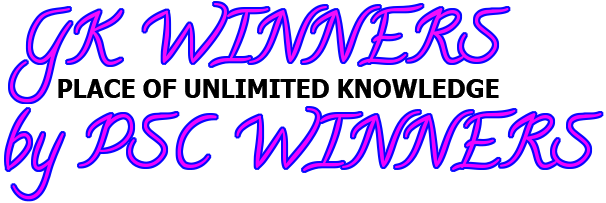PEDAGOGY - TEACHING APTITUDE -MODEL QUESTIONS - 20
536. Mind mapping refers to(a) a technique to enhance Comprehension
(b) a plan of action for an adventure
(c) drawing the picture of mind
(d) Researching the functioning of the mind
Answer: (a)
537. Kalyani took her class for a field trip and after coming back, she discussed the trip with her students it can be noted as
(a) Assessment for learning
(b) Learning as assessment
(c) Assessment of Learning
(d) None of these
Answer: (a)
538. Inclusive education
(a) Encourages strict admission procedures
(b) Includes indoctrination of facts
(c) Includes teachers from marginalised groups
(d) Celebrates diversity in the classroom
Answer: (d)
539. Which one of the following is an appropriate assignment for a gifted student ?
(a) Create a prototype of a new science book based on different themes
(b) Letting him/her finish the text book on his/her own before the entire class
(c) Many more exercise of the same type in comparison to other students
(d) Asking him/her to tutor the peer to channelise the energy and keep him/her busy
Answer: (a)
540. Problem Solving is morn likely to succeed in schools where
(a) The emphasis is only on higher order academic achievement
(b) Teacher-Centric pedagogy is in effect
(c) a flexible curriculum is in place
(d) Homogenous groups of students are present in the classes
Answer: (c)
541. Which of the following figures correctly represents the development according to Piaget's developmental theory?
Answer: (c)
542. A teacher is connecting a text to the previously learnt text and showing children how to summarise it. She is
(a) Reinforcing the importance of text from the assessment point of view
(b) Encouraging children to mug it up as effectively as possible
(c) Helping children to develop their own strategy to comprehend it
(d) Insinuating that there is no need to go through the entire text
Answer: (c)
543. Which of the following factors supports learning in a classroom ?
(a) Sticking to one particular method of instruction to maintain uniformity
(b) Increasing the time interval of periods from 40 minutes to 50 minutes
(c) Increasing the autonomy of children by the teachers
(d) None of these
Answer: (c)
544. Which of the following are strategies for classroom interactions
(a) Encourage cooperative learning
(b) Provide concrete experiences
(c) Teach through peer interaction
(d) All of the above
Answer: (d)
545. A teacher says to her class, "As Individual assignments are designed to help individual students learn more effectively, all students should complete assignments prescribed without any assistance" she is referring to which of the following stages of Kohnberg's moral development?
(a) Pre-conventional stage 1 - Punishment avoidance
(b) Pre-conventional stage 2 - Individualism and exchange
(c) Conventional stage 4 - Law and Order
(d) Post - Conventional stage 5 - Social Contract
Answer: (b)
546. A disorder related to language comprehension is
(a) Discalculia (b) Aphasia
(c) Apraxia (cl) Dyslexia
Answer: (b)
547. Following are the Critical Views about the "theory of multiple intelligences", except
(a) Gifted students usually excel in a single domain
(b) It lacks of empirical support
(c) It is not research based
(d) Different intelligences demand different methods for different students
Answer: (a)
548. School based assessment was introduced to
(a) Motivate teachers to punctiliously record au the activities of students for better interpretation of their progress
(b) Encourage schools to excel by competing with the other schools in their area
(c) Decentralise the power of boards of school education in the country
(d) Ensure the holistic development of all the students
Answer: (d)
549. According to Piaget, a Mathematics teacher can teach, A+B = B+A only when the child's cognitive development is at
(a) Sensorimotor stage
(b) Pre-operational stage
(c) Concrete Operational stage
(d) Formal Operational stage
Answer: (c)
550. A mental activity that goes on in the brain when a person is processing information is called
(a) Imagination (b) Thinking
(c) Intuition (d) Problem Solving
Answer: (b)
PSC Solved Question Papers ---> Click here
PSC TODAY's EXAM RESULTS ---> Click here
PSC EXAM PROGRAMME -> Click here
CURRENT AFFAIRS QUESTIONS -> Click here
PSC Degree Level Questions & Answers - Click here
PSC 10th, +2 Level Questions & Answers - Click here
PSC RANK LISTS / SHORTLISTS -> Click here
TEACHING APTITUDE TEST (K-TET, C-TET,, etc.) ---> Click here* SCERT KERALA TEXTBOOKS FOR CLASS II, IV, VI, VIII, IX, X, XII – FREE DOWNLOAD ---> Click here
* NCERT & CBSE TEXTBOOKS FOR ALL CLASSES – FREE DOWNLOAD ---> Click here
* SCERT TEXTBOOKS SOLUTIONS FOR ALL CLASSES ---> Click here
* NCERT & CBSE TEXTBOOKS SOLUTIONS FOR ALL CLASSES ---> Click here







0 Comments